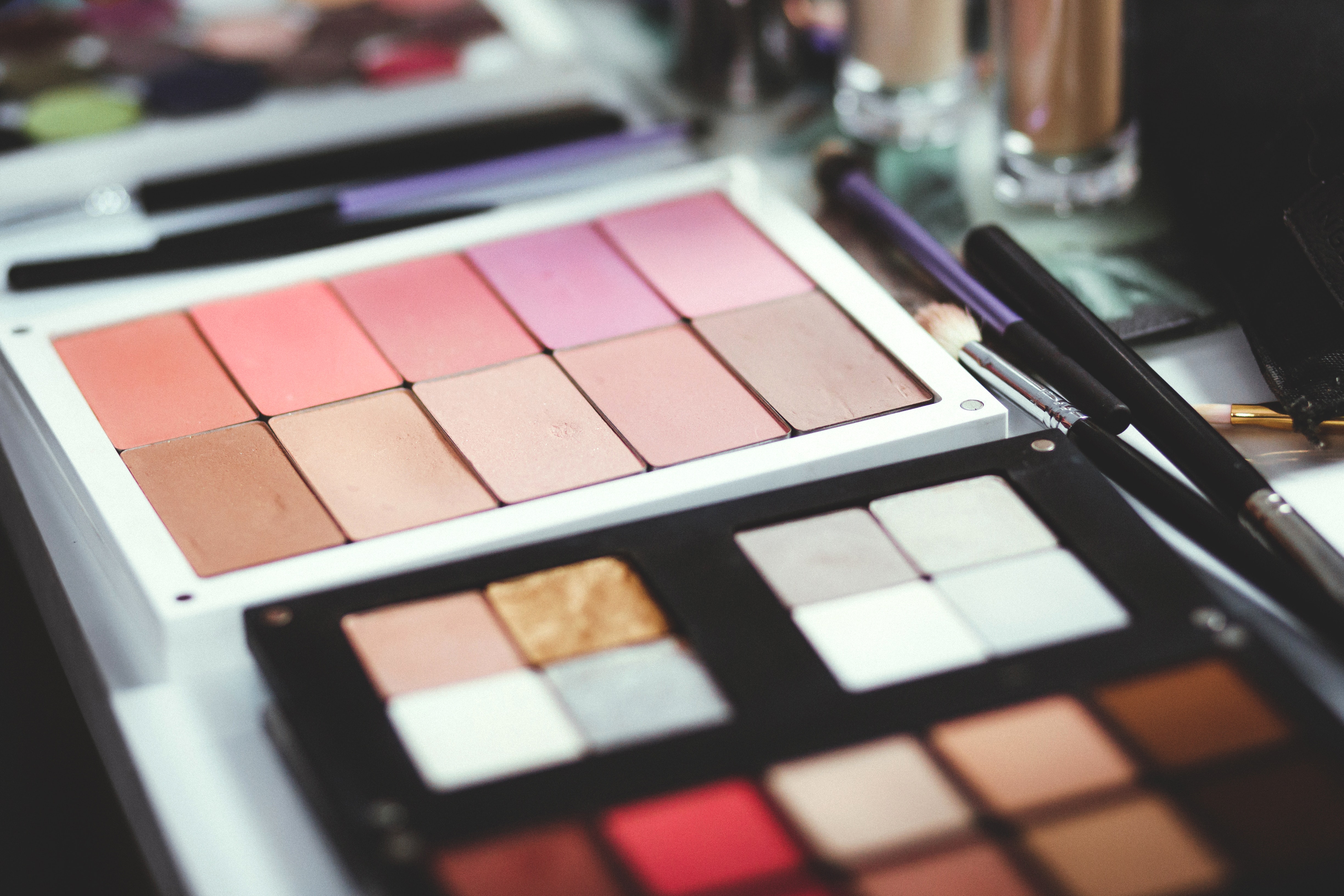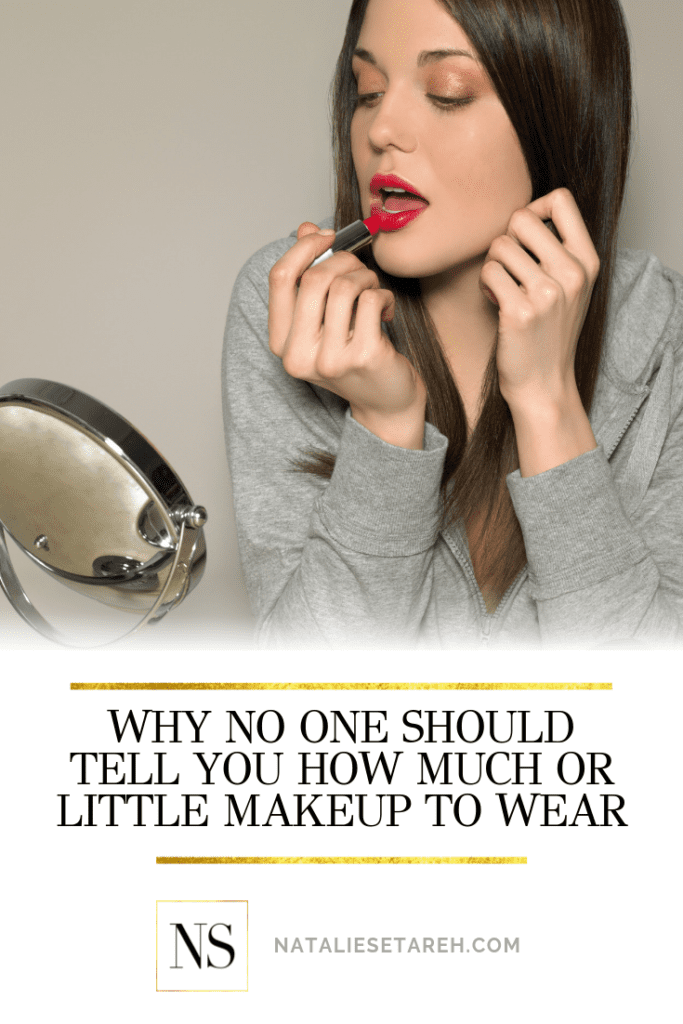
This is a guest blog post, written by wellness expert and love coach, Orion Talmay. I am always open to featuring other people’s perspectives on my blog, especially on the topic of makeup and empowerment. I hope you’ll find her post as interesting as I did.
Enjoy!
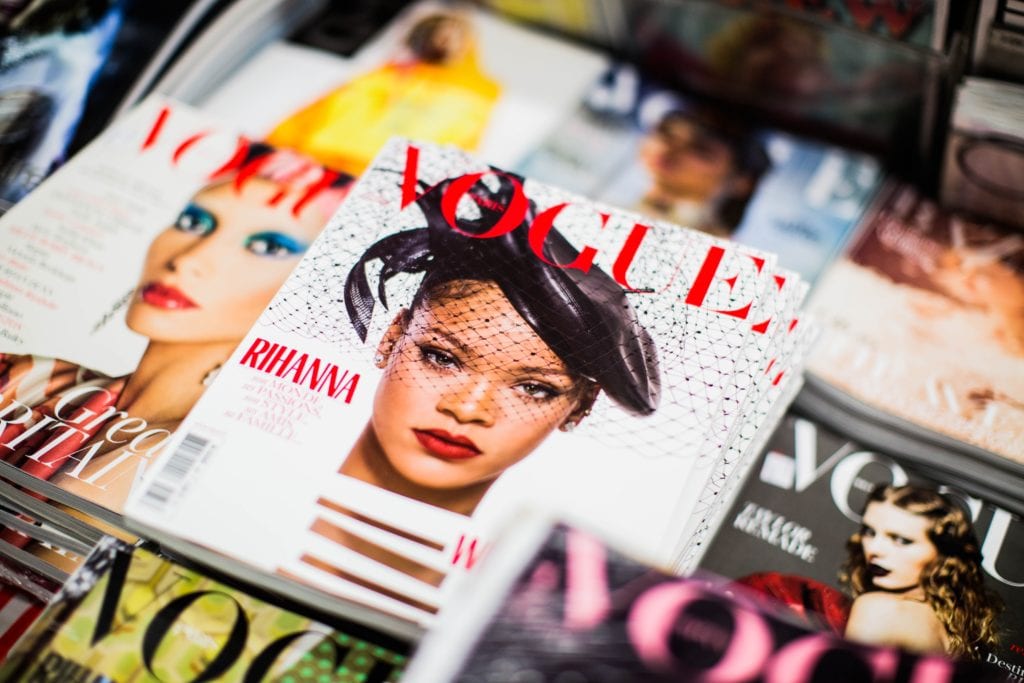
Photo by Charisse Kenion on Unsplash
For some reason, society has always had a habit of telling women how much or how little make-up they should be wearing. Look at any glossy celebrity magazine and you’ll find indignant pieces shaming famous actresses and musicians for going out wearing no makeup.
Even outside of magazines, we’re not safe. How many men (and even some women) have told you off for wearing too much or too little makeup? Ultimately though, it’s not down to celebrity magazines or strangers in the street or even your friends and family to dictate your cosmetic routine — it’s down to you.
If you want some great reasons to throw back at someone when they make a passing remark about your makeup, read on.
Recommended reading: When is it “too much” makeup?
Personal preference reigns supreme
Everywhere we go, there are loud, daunting adverts for makeup. Impossibly beautiful women leer down at us from billboards, telling us to buy a certain brand of lipstick — the implication being that, without it, we fall short of the model’s own beauty.
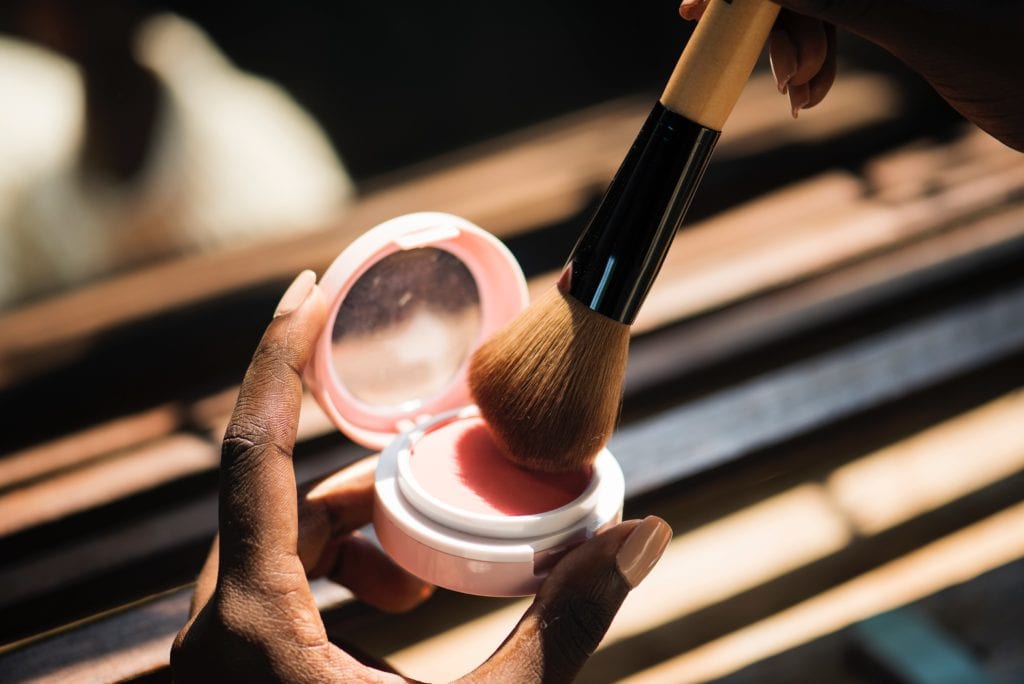
With messages bombarding us from all corners telling us we should wear makeup, it’s easy to forget that it’s not compulsory — it’s a choice.
Makeup is part of an unspoken societal ‘rule’ that we all take as gospel without good reason: wear makeup or be exiled to the fringes.
This is the same structure that tells us it’s weird to dance or sing along to music on our headphones in public. Or that it’s frowned upon to wear something a little kooky or out there.
These arbitrary social rules have no basis in reality — there are no serious repercussions if we disobey them. We won’t fall ill if we don’t wear makeup, for instance. The makeup brands propagating these messages want us to follow these rules for profits, not out of any concern for the consumer.
Makeup is a choice. There’s no genuinely right or wrong option — it lies with you, and you alone.
It’s your face (and no-one else’s)
Picture the situation: you invite a stranger into your new home, a home that you’ve lovingly decorated and arranged in the perfect style. You take great pride in it, and rightly so.
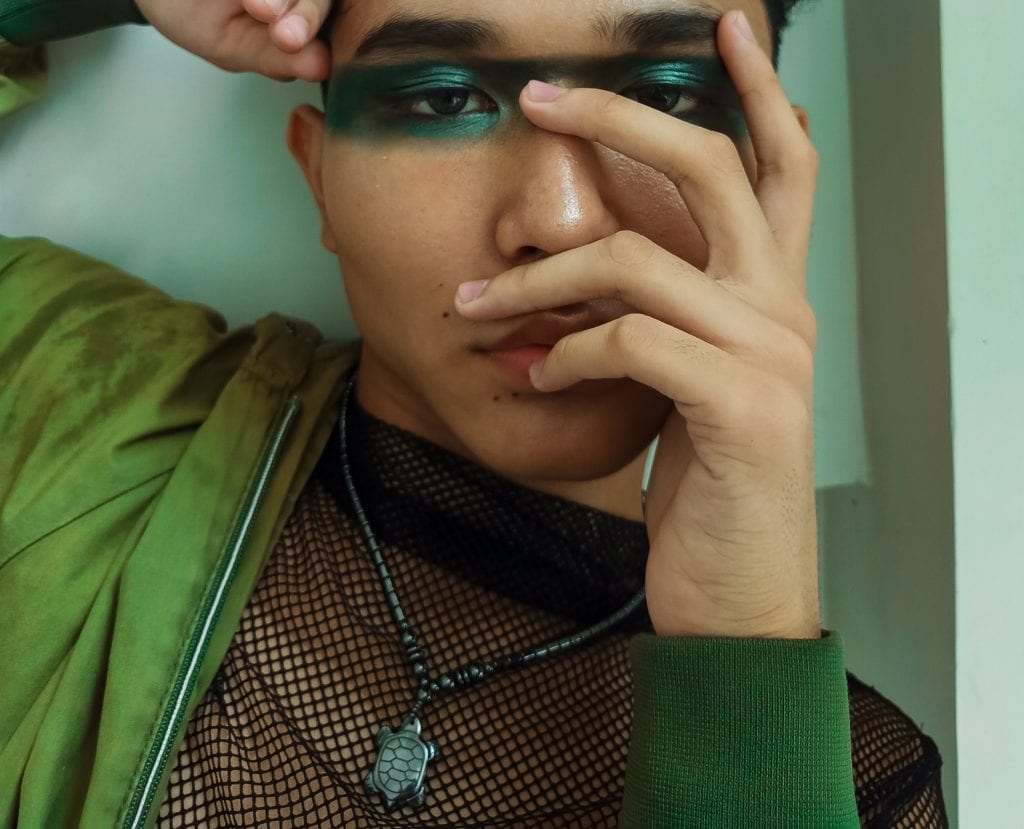
Photo by Jameson Mallari Atenta from Pexels
But a stranger walks into your home, looks it up and down, and says: “do you really think you should have used that shade of orange?”
Of course, this situation would rarely happen. It’s rude and impolite — so why do people feel comfortable saying the same about makeup?
It’s your home — and it’s your face. Just as you don’t decorate your house or apartment to please other people, nor should you decorate your face to satisfy others too.
Want Black Swan eye makeup? Go for it. Fancy a Rocky Horror vibe today? That’s your prerogative.
Like your home, your face is a private space for you to show off to whomever you please — even if it’s just you. Craft it to please yourself and no-one else.
Not every situation calls for makeup
Many people think that makeup is — and should — be worn every day. Come rain or shine, hell or high water, a woman should be immaculately made up, from foundation to wingtips.
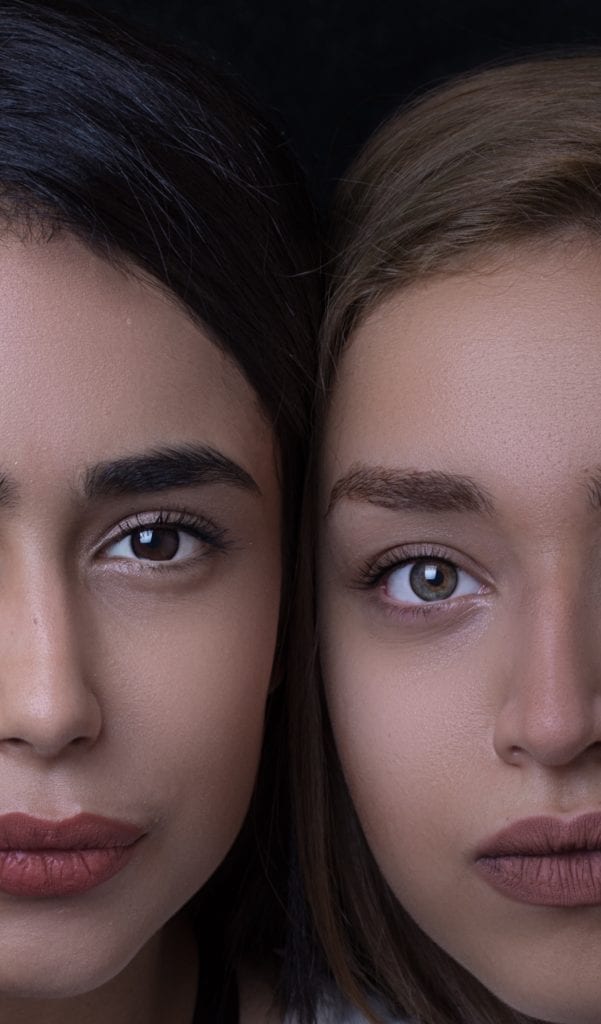
Photo by Hadis Safari on Unsplash
Society and the media propagate these images of women that are always flawlessly made up. How often have you seen a girl wake up after a wild night out and look nothing less than immaculate? Even the women in The Walking Dead look perfect, and they’re living in a post-apocalyptic wasteland!
Consequently, the world expects real women to look the same. But in this case, life doesn’t imitate art.
You don’t have to wear makeup every day, all the time, for every situation.
If you wake up hungover and bed-haired, it’s okay to not want to spend time doing your makeup that morning. You can just roll out of bed to the shops in your old yoga pants — that’s your choice.
It’s about being different, not being the same
Makeup is a powerful tool for creating your identity. The shade of lipstick you choose, the tone of eyeshadow, the hue of blush — it all helps you craft a unique and distinct identity that makes you stand out in life.
But you know what else achieves this? Not wearing makeup.
Making the decision to eschew cosmetics is just as powerful as actually using makeup. Embracing your natural beauty is a bold step to take.
To be different is to be remarkable, the driver of deep personal change and growth. It is what makes you special, and deciding whether or not to use makeup is a decision that speaks volumes about you as a person.
Being remarkable doesn’t hinge on whether or not you wear makeup in the sense that one option is correct. It hinges on the idea behind that decision. To wear makeup or not to wear makeup isn’t the question — it’s about doing something that makes you feel different.
No-one should tell you how much or how little makeup you should wear. It’s your face, your makeup, and your life. The overriding lesson here is that your appearance is entirely your prerogative. Let others bow to the unwritten and arbitrary societal ‘rules’ — follow your own instead.

About The Author:
Orion Talmay is a wellness expert and love coach. Through her integrative approach, Orion’s Method, she helps women awaken their inner goddess and nurture their feminine confidence.
Orion is a graduate of Tony Robbins’ Mastery University and holds certifications with the AAPT, KBA, and AFFA.
Beauty is about perception, not about make-up. I think the beginning of all beauty is knowing and liking oneself. You can't put on make-up, or dress yourself, or do you hair with any sort of fun or joy if you're doing it from a position of correction.
kevyn aucoin
